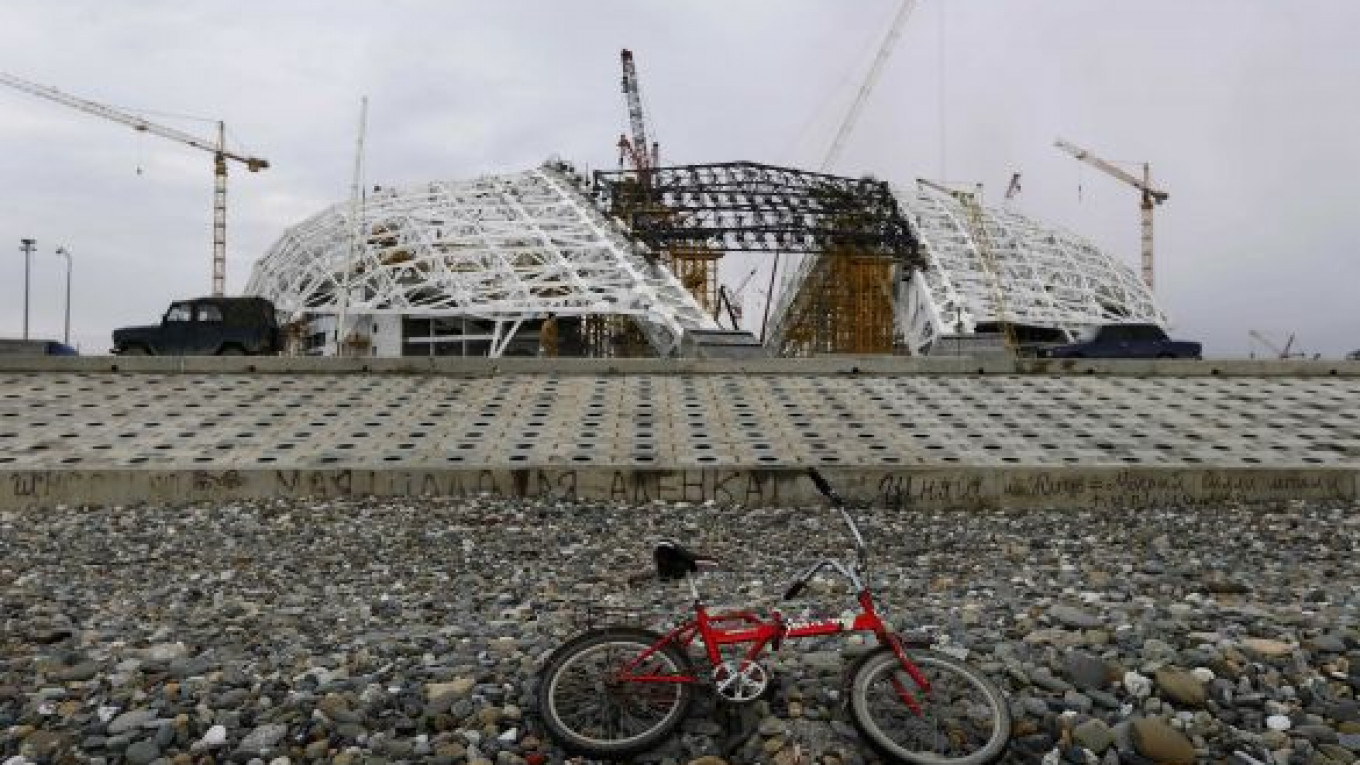An easing of visa requirements for Europeans is unlikely even for next year's Winter Olympics in Sochi, as officials from both Moscow and the EU insist on their positions.
A visa facilitation agreement remains elusive as long as Moscow insists on a visa-waiver for government officials, EU delegation spokesman Soren Liborius said Tuesday.
An agreement guaranteeing certain professional groups like journalists and NGO workers long-term multiple entry visitors' visas has been held up for more than a year since Moscow suddenly demanded to include visa-free travel for holders of so-called official passports.
EU negotiators have refused to discuss the issue, arguing that the number of passport holders remains unclear and that such passports, which are not diplomatic, do not exist in many EU member states.
Liborius added that no date for the beginning of talks about scrapping visas would be set as long as both sides are completing a program of "common steps" that sets the necessary conditions. "We do not want artificial dates," he told The Moscow Times. He added that the program was complex enough: "Nobody expected it to be easy," he said.
Earlier, the Foreign Ministry signaled that Moscow has given up its hope to abolish visas before the Sochi games, which kick off in February 2014. "The Europeans are holding up the process by politicizing it," Kommersant quoted an unidentified ministry source on Tuesday. The source added that Moscow now expects to reach a waiver deal by the end of 2014.
Liborius retorted that Moscow could easily make a visa-free regime for the Winter Games happen. "They just need to lift visas unilaterally," he said.
President Vladimir Putin has promised to scrap visas for soccer fans visiting the 2018 World Cup in the country, but no such offer has been made for the Olympics.
Rather, the government has used the Sochi games to put pressure on the EU. In November, Anvar Azimov, the Foreign Ministry's point man on the visa negotiations, threatened that Moscow would retaliate "adequately" if no visa waiver is reached by the end of 2013.
Foreign Minister Sergei Lavrov raised the visa issue Tuesday during talks with EU foreign policy chief Catherine Ashton in Brussels, according to a statement on his .
Reached by telephone in Brussels, Ashton's spokeswoman Maja Kocijancic could only confirm that the subject was mentioned. An official EU did not mention it.
Liborius said a fresh approach could be made next month, when a delegation of EU commissioners headed by Commission President Jose Manuel Barroso meet with their Russian government counterparts in Moscow. The two-day talks commencing on March 21 should be "an opportunity to revitalize some difficult questions," Liborius said.
The Russian-EU visa talks only affect members of the Schengen agreement, which includes non-EU countries like Switzerland and Norway, but excludes EU member states Britain and Ireland.
Russia has visa-free free travel with a host of former Soviet countries, most Latin American countries and some Asian and African states. It reached a facilitation agreement guaranteeing three-year multiple entry visas with the U.S. last year.
Contact the author at n.twickel@imedia.ru
Related articles:
A Message from The Moscow Times:
Dear readers,
We are facing unprecedented challenges. Russia's Prosecutor General's Office has designated The Moscow Times as an "undesirable" organization, criminalizing our work and putting our staff at risk of prosecution. This follows our earlier unjust labeling as a "foreign agent."
These actions are direct attempts to silence independent journalism in Russia. The authorities claim our work "discredits the decisions of the Russian leadership." We see things differently: we strive to provide accurate, unbiased reporting on Russia.
We, the journalists of The Moscow Times, refuse to be silenced. But to continue our work, we need your help.
Your support, no matter how small, makes a world of difference. If you can, please support us monthly starting from just $2. It's quick to set up, and every contribution makes a significant impact.
By supporting The Moscow Times, you're defending open, independent journalism in the face of repression. Thank you for standing with us.
Remind me later.


